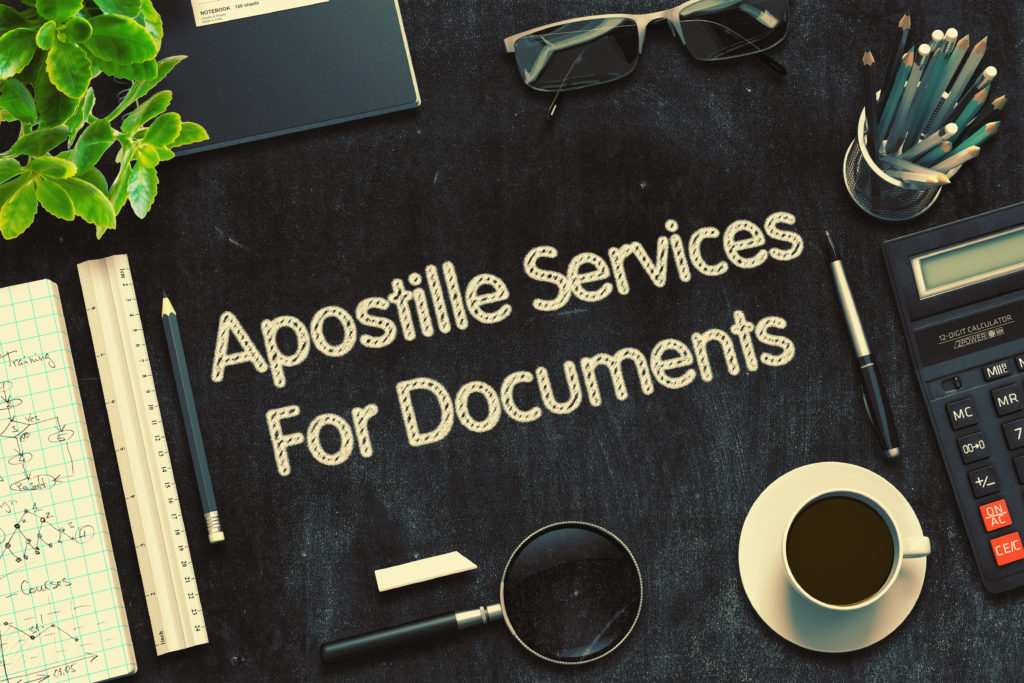Life is full of exciting milestones. Graduations, weddings, and big promotions are just a few examples. Amongst these milestones, some people will make the big decision to buy a house. Becoming a homeowner is an exciting step in life. However, owning a home is a huge responsibility. From the very beginning, buying a house involves a lot of paperwork. No property transaction is complete without a deed. Moreover, did you know that there are different types of deeds? In this article, you are going to learn everything you need to know about a quitclaim deed.
What is a Deed?
Before we dive too deep into the different types of deeds, let’s cover the basic definition of a deed itself. A deed is a document that displays ownership of a specific property. The property at hand can be a home, a parcel of land, an office building, or even an island. Any physical property that can be bought and sold will have a deed to prove ownership. When a property changes hands, the previous owner must sign the property deed to transfer the right to ownership to the buyer.
It is important to note that simply signing a deed does not magically officiate new ownership. A title transfer also must occur (more on that later). Additionally, many states require that the deed be submitted on the public record in order to be officially recognized.
What does a Deed Involve?
Like many matters of legal and financial importance, laws and regulations vary by state. Be that as it may, generally speaking, a property deed document will include the following information:
- A written indication that the document is, in fact, a deed
- Contact information for both the buyer and the seller
- Signatures from both of the above parties
- A detailed description of the property itself
In most cases, the deed must be physically transferred from the previous owner to the new owner. This action can be as simple as handing it to them.
What is a Quitclaim Deed?
Now that we know what a deed is, let’s tackle the mysterious quitclaim deed. A quitclaim deed (QD) transfers a sellers interest in a specific property to a potential buyer. A foundational element of a QD is unwarranted and unprotected. That is to say, a quitclaim deed does not ensure that the seller actually owns the property they are selling. Certain types of property transactions may benefit from using this type of deed.
Grantor vs. Grantee
In matters pertaining to property ownership transfers you will inevitably hear the terms “grantor” and “grantee”. What is the difference? Which is which? Read on to find out!
Grantor Definition
Simply put, the “grantor” in terms of real estate, refers to the seller. The grantor typically carries more liability in transactions dealing with important assets (such as houses). Therefore, it is an important step for a seller to sit with a lawyer to discuss terms of sale and the type of deed and title transfer best suited for the sale of their property.
Grantee Definition
Conversely, the “grantee” is the buyer. Once ownership has been officially transferred, the grantee will become the grantor in any future sale of the property.
When is a Quitclaim Deed Used?
More than likely, the notion of someone trying to sell something they don’t actually own sounds strange to you. As it should! However, this type of deed is typically used in matters pertaining to families or close friends. Therefore, making quitclaims a bit safer. Some scenarios in which a quitclaim deed may be appropriate:
- Simple property transfers between siblings
- Ownership transfers from parents to children and vis versa
- Adding a spouse to a deed after getting married
- Transferring ownership to one person after a divorce (this can save time and money for couples parting ways in an amicable fashion)
- The transfer of property to trust.
- Changing your name on a current deed (such as after getting married, etc)
Additionally, here are some examples that are non-familial:
- Tax deed sales – In the event that a house is seized due to outstanding tax debts, it will sometimes be sold in a public auction. In this case, the seller (i.e. the local government) does not claim any interest in the property itself. Instead, they are looking to recoup the previous owner’s tax debts.
- Transferring a property from personal to business use
Quitclaim deeds should be used between two parties that know and trust one another. Exercise caution if a seller you don’t know is encouraging you to use a quitclaim deed for your transaction.
Quitclaim Deed Form
Anyone can easily generate a quitclaim deed form online. Rocket Lawyer, for example, provides an easy to use quitclaim form deed generator. After selecting the state of the property sale, you will need to accurately provide the following information:
- Address of the property
- Current contact information and marital status of both the seller and the buyer
- Date of property sale/transfer
- The State where the deed will be signed and notarized
- The State tax exemption status
- Purchase price (if applicable)
- Preference of the grantor to maintain any gas, oil, or mineral rights to the property
Naturally, the above list is just a skeleton of the deed. Requirements vary by state. Be sure to check your local laws to ensure you properly execute your quitclaim deed form. To help illustrate some of the differences by state, we have detailed some state-mandated quitclaim deed requirements below.
Quitclaim Deed California
Once you have filled out a California quitclaim deed, you will need to get it notarized. Next, you will need to need to visit your appropriate local government office to file some paperwork. Depending on your county of sale, that may be a Recorder’s office, a County Clerk’s Office, or an Assessor’s office. There you will file submit your quitclaim deed and file three forms:
- Documentary of transfer tax
- Notice of Exempt Transaction
- Preliminary Change of Ownership Report.
The cost to file a quitclaim in California starts at roughly $15, with the possibility of additional fees of up to $87 dollars. To enumerate, in California requirements can vary on a county to county basis. In other words, the regulations regarding quitclaim deeds in California are not uniform statewide.
Quitclaim Deed Texas
Texas is notoriously fickle when it comes to quitclaim deeds. While the regulations for filing quitclaim deeds vary from state to state, it federally recognized that a quitclaim deed does not guarantee a grantor owns the property they are trying to sell. Texas has a problem with this notion, particularly on the insurance front. If you are smart about purchasing property, you will likely want to acquire title insurance. In Texas, title insurance companies are very unlikely to take on a client involved in a quitclaim deed sale.
If you are on either end of a quitclaim deed transaction in Texas, Deed Claim has a very thorough breakdown of requirements.
Quitclaim Deed Arizona
A properly filled out quitclaim must be notarized to be considered valid in Arizona. It is essential that the grantor and grantee sign the quitclaim in the presence of a notary public. Then, the grantee will pay the appropriate fees to file the quitclaim with the appropriate county recorder’s office.
In some cases, the state of Arizona may mandate the filing of an affidavit of property value. This affidavit would require a separate notarization to be filed properly.
Other Types of Deeds
What do you do if you are purchasing a piece of property from someone you do not know? What type of deed do you need? Well, there are three alternative deeds used in the transfer of property ownership: general warranty, specialty warranty, and bargain & sale.
General Warranty Deed Definition
One of the more common types of deeds in a property sale is a general warranty deed (aka warranty deed). In this case, a grantor does, in fact, hold the title of a property and has the proven right to sell it as the owner. Additionally, the grantor takes responsibility for any possible liens of creditor issues with the property. This guarantee goes as far back as the origin of the property – whether or not the grantor owned the property since then.
A general warranty deed offers the best protection for the buyer. When the grantor signs the general warranty deed, they protect the grantee from any possible title issues. For this reason, mortgage lenders prefer the use of general warranty deeds are used in the sale of residential property transactions.
Elements of a General Warranty Deed
A proper general warranty deed will include:
- The name and contact information of the grantor
- The name and contact information of the grantee
- A written statement that the current owner is selling the property to the buyer
- A legally acceptable description of the property (which can typically be found on the previous owner’s deed)
- A written statement that the current owner (grantor) is the current legal owner of the property and therefore has the ability to sell it
- Written confirmation that should claims arise, the grantor will cover them instead of the grantee
- A written statement that the grantor does not know of any current legal claims or liens on the property
You will likely notice the above list does not include any financial details, such as the sale price or property value. A general warranty deed legally portrays the intent and ability to transfer ownership.
Specialty Warranty Deed Definition
Similar to a general warranty deed, a special warranty deed guarantees that the seller owns the property and therefore has the legal right to sell it. The primary difference is that a specialty warranty deed only holds the grantor liable for warrants that occurred during the grantor’s period of ownership. This type of deed helps protect the grantor aka the seller. This type of deed is commonly used for transactions dealing with commercial properties.
Both special warranty deeds and general warranty deeds protect the buyer by guaranteeing:
- The seller actually owns the title to the property
- The seller has the legal right to sell the property
- That the property is still available for purchase
- To the knowledge of the seller, the property is debt-free (unless otherwise stated in the deed)
- The seller is liable for any problems with the property (unless an agreement has been made to the contrary)
Bargain and Sale Deed
Like specialty and general warranty deeds, a bargain and sale deed guarantees that the grantor owns the title and right to sell the property. However, a bargain and sale releases the seller of any liability regarding possible warranties outstanding on the house.
This type of deed is most often used in the event of tax sales and foreclosures. In this case, a bank or government body typically takes over the property in question. The said authority has it typically less informed regarding the history of the property. Therefore, they do not want to be held liable for any outstanding warranties.
Elements of a Bargain and Sale Deed
The following provisions are likely to be detailed on a bargain and sale deed:
- Date of sale
- The names of the grantor and grantee
- The purchase price of the property
- Type of property sold (residential, commercial, etc)
- A legal description of the property
- Verbiage releasing the seller of liability in regards to any possible outstanding warranties such as: “grantor grants and releases or grants, bargains, and sells”
How do I get a Deed Notarized?
As you may have noticed, all types of deeds require notarization in order to be valid. What does that mean exactly? Notarization has existed, in some form or another, for countless centuries. In modern America, a notarization is done by a certified notary public. A notary public is an official representative of the secretary of state.
A notary public acts as an impartial witness to the signing of documents of great value. Therefore, it is not just property deeds that require notarization. Divorce papers, prenuptial agreements, and affidavits are just a few other documents commonly requiring notarization.
A notary not only witnesses the signing of documents but validates the signer’s identity. Furthermore, a notary ensures that the signer understands the contents and is signing willingly. The primary purpose of notarizing documents is to prevent fraud. A notary is not allowed to give legal advise or act as an attorney.
Where to find a Notary Public?
Fortunately, you should not have to look too far to find a notary near you. Depending on where you live, you can likely find the services of a notary at several local businesses. Some good places to look are:
- Your office – Several companies offer onsite notaries to streamline internal company paperwork processing. As an employee, you should be able to use these services for personal matters as well
- Banks – Arguably the most common place to find a notary is a bank. Better yet, if you are an account holder, sometimes they will offer free notary services as an added benefit of being their client
- Real estate or insurance offices – Whether or not you are a customer at these establishments, if they have a notary, they have to help you. Notary publics serve the public
- Local Government establishments – From public libraries to city hall, there is a notary at a local government office waiting to help you
- Military Bases – If you or a relative are active military, you should be able to access free notary services at your military base
- Mobile notaries – Better yet, why run around trying to find a notary when they can come to you! This option is especially common for those living in large cities
Bear in mind that notary hours and ability are subject to the establishment. Do some research on your area to find the best notary service near you.
What do I Need for a Notarization?
Save yourself valuable time and money by coming prepared to your notary appt. State notary laws and requirements vary from state to state. However, the following list is a good place to start.
Proper Identification
The cornerstone of a successful notarization is proper identification of the signer. Therefore, the presentation of a proper form of identification is crucial. The most commonly accepted forms of i.d. are a valid passport or driver’s license. Essential elements of a valid i.d. for a notary include:
- A recent photo
- Your signature
- A brief physical description (hair and eye color, etc)
- The issuing authority (i.e. Texas, California, U.S.A, etc)
If you have an alternative form of identification, be sure to check with your local notary to make sure it is acceptable.
The Document
This should go without saying, but don’t forget the document you need notarized! Be sure to fill out all the required fields beforehand to save time. However, resist the urge to sign! Most states require you to sign in front of the notary.
All Required Parties
Most documents require signatures from more than one person. If all the necessary parties attend the notary appt at the same time, you can save time and money. In the event that is not a possibility, it is legal to have signatures notarized at different times, even by different notaries. However, this process adds considerable time delays and fees along the way.
The Notary Fee
Prices of notary services depend greatly on a number of factors. Fortunately, most states do not allow notaries to charge more than $10 per signature. Some notaries can, and will, charge extra fees for certain services. For example, mobile notaries typically charge for time and mileage to cover their travel expenses. If you suspect someone is overcharging you for notary service, be sure to report it to the proper authorities.
Deed vs. Title
It is vital to understand the difference between a deed and a title. Both deeds and titles are legal instruments used in the transfer of property. However, they carry entirely different weights in terms of actual ownership.
A title is a document that proves ownership of a property. If your name is on the title of a property, you have the right to access, alter, and sell the property as you please. Some titles detail the partial ownership of a property or entity. For example, your name may be on the title for a condo in a large residential complex. You would have the right to modify and sell that particular unit as you see fit. You would not, on the other hand, have the right to sell the building in its entirety.
Conversely, a deed is a written document that details the transfer in the interest of a property title from a seller to a buyer. A deed must be notarized and filed with the county registrar to be officially recognized by the state. It is important to understand that a deed does not legally officiate an exchange in ownership. The buyer must apply for a new title to officially bear ownership to the property.
How to Apply for a Title
The title process is different in every state. To protect your assets, be sure to specifically research the title process for the state where you purchased a property. Fortunately, Discover has some wonderful general best practices regarding property titles.
Quitclaim Deeds: In Summary
First and foremost, it is essential to take the time to understand the deed and title process recognized by your state. Rules and regulations vary widely across state lines. Avoid expensive legal troubles by abiding by the appropriate state guidelines regarding transfers of property ownership. Nationwide, quitclaim deeds do not guarantee that a seller has any legal right to the property in which they are selling. Therefore, quitclaim deeds are primarily useful in matters dealing with family and trusted friends. Anyone could draft a quitclaim deed for the Golden Gate Bridge, but that doesn’t mean they own it and have the right to sell it! If you are buying property from a third party, be wary of a seller with a quitclaim deed.
Sources
https://www.realtor.com/advice/sell/need-quitclaim-deed/
https://www.legalzoom.com/articles/what-is-a-quitclaim-deed
https://www.thebalance.com/definition-of-grantor-1798565
https://www.deedclaim.com/texas/quitclaim-deed/
https://www.discover.com/home-loans/blog/6-things-know-property-titles
https://www.rocketlawyer.com/article/whats-the-difference-between-a-property-deed-and-a-title-ps.rl
https://legalbeagle.com/6240558-file-quit-claim-deed-arizona.html
https://www.legalzoom.com/articles/california-requirements-for-quitclaim-deeds
https://www.thebalance.com/definition-of-grantee-1798564
https://www.realestatelawyers.com/resources/real-estate/deeds-and-trusts/bargain-and-sale-deed.htm
https://www.investopedia.com/terms/s/special-warranty-deed.asp
https://thismatter.com/money/real-estate/deed-types.htm
https://definitions.uslegal.com/g/general-warranty-deed/
https://www.deedclaim.com/warranty-deed/
https://en.wikipedia.org/wiki/Quitclaim_deed
https://smartasset.com/mortgage/house-deed
https://www.rocketlawyer.com/form/quit-claim-deed.rl#/
http://help.legalnature.com/articles/what-you-need-to-know-about-deeds-and-property-transfer




